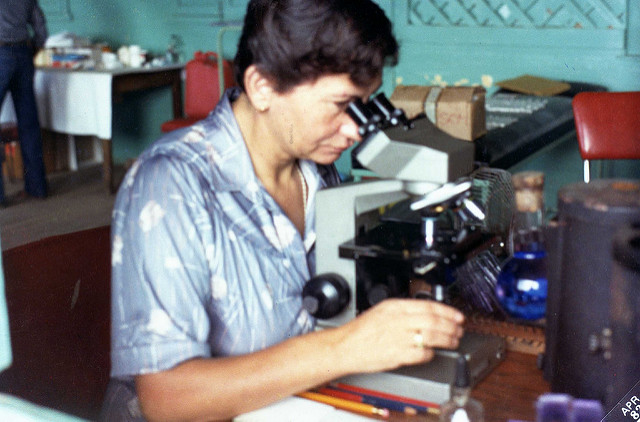In a fortunate accident, researchers who were trying to develop a vaccine against malaria for pregnant women discovered a potential weapon against cancer. The scientists, from the University of Copenhagen and the University of British Columbia, realized that the carbohydrate that malaria parasites attach to in the placenta is identical to a carbohydrate found in cancer cells. The researchers recreated the protein that malaria parasites use to attach themselves to the carbohydrate, called VAR2CSA, and added a toxin to it. This combination of protein and toxin effectively creates a weapon that seeks out the carbohydrate present in the placenta and cancer cells. When cancer cells absorb the VAR2CSA protein, the toxin is released and kills cancer cells.
Image Source: paci77
The team examined the carbohydrate’s function further and found that it helps to ensure rapid cell growth, both in the placenta and in cancer cells. In fact, when researchers combined the malaria parasite with cancer cells, the parasite immediately attached itself to the cancer cell carbohydrates, reacting to the cells as though they were from a placenta.
Further research into the effectiveness of the VAR2CSA protein showed that it was able to attack more than 90% of all types of tumors tested. The drug was tested on mice with three types of tumors: non-Hodgkin’s lymphoma, prostate cancer, and metastatic bone cancer. The mice with non-Hodgkin’s lymphoma treated with the protein had tumors only one quarter of the size found in those of the untreated mice. For prostate cancer, two of the treated mice had their tumors completely disappear. For metastatic bone cancer mice, five out of six treated mice survived longer than eight weeks, while none of the untreated mice survived.
The VAR2CSA protein shows a lot of potential as a treatment for cancer. It appears to attach to tumor cells without any significant attachment to other tissues, which is beneficial because it means other healthy cells are not destroyed by the toxin added to the protein for treatment purposes. One limitation of this treatment is that it is not an option for pregnant women since the protein would bind to the placenta as if it were a tumor and release the toxin, destroying the placenta. Further research is required to test the safety and effectiveness of this treatment in humans, but researchers hope to conduct human trials within four years.
Feature Image Source: Tita en Malaria by Miguel Olaya










